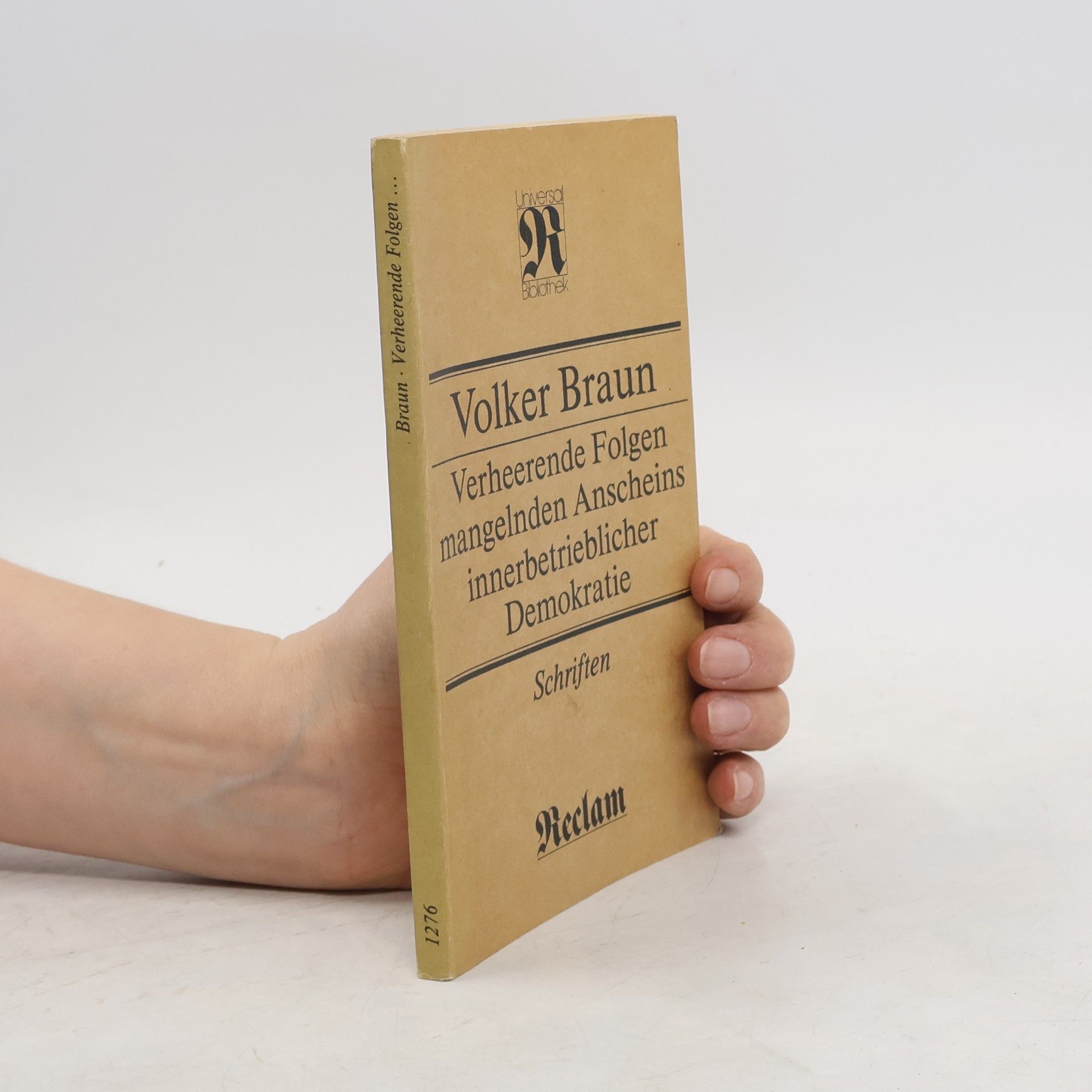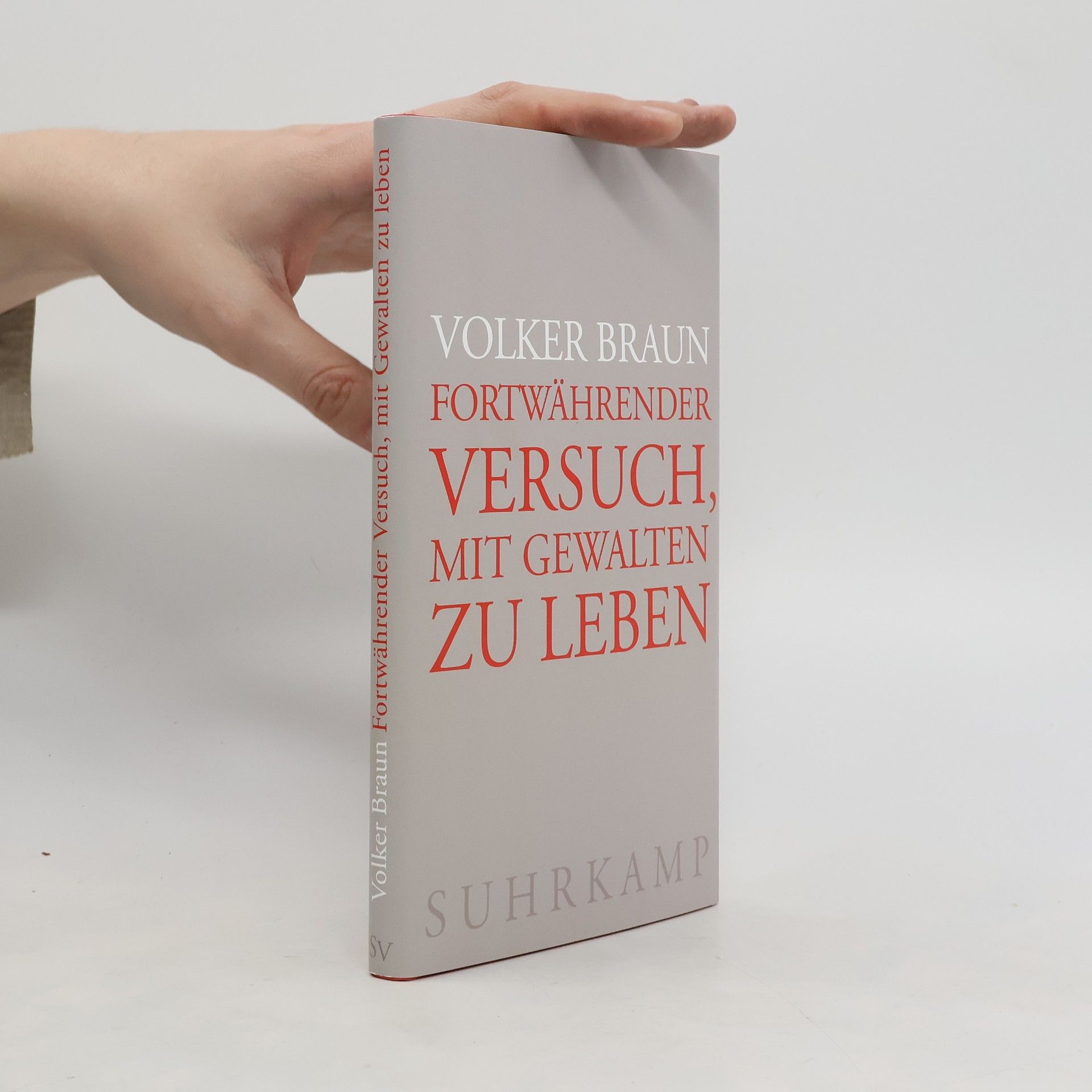Volker Braun Knihy
Volker Braun je politický básník s výraznými estetickými kvalitami a význam jeho tvorby přesahuje všechny žánry. Jeho rozsáhlé dílo, byť mnohostranné, se soustředí na otázku politické emancipace. V NDR kritizoval „reálný socialismus“, ale nikdy neztratil naději, že se věci mohou zlepšit. Braunova poezie se často identifikuje s nerealizovanou možností, kde rozpor mezi utopií a realitou je vyjádřen skrze jazyk samotný, s vnitřním napětím a dialektickým vztahem.
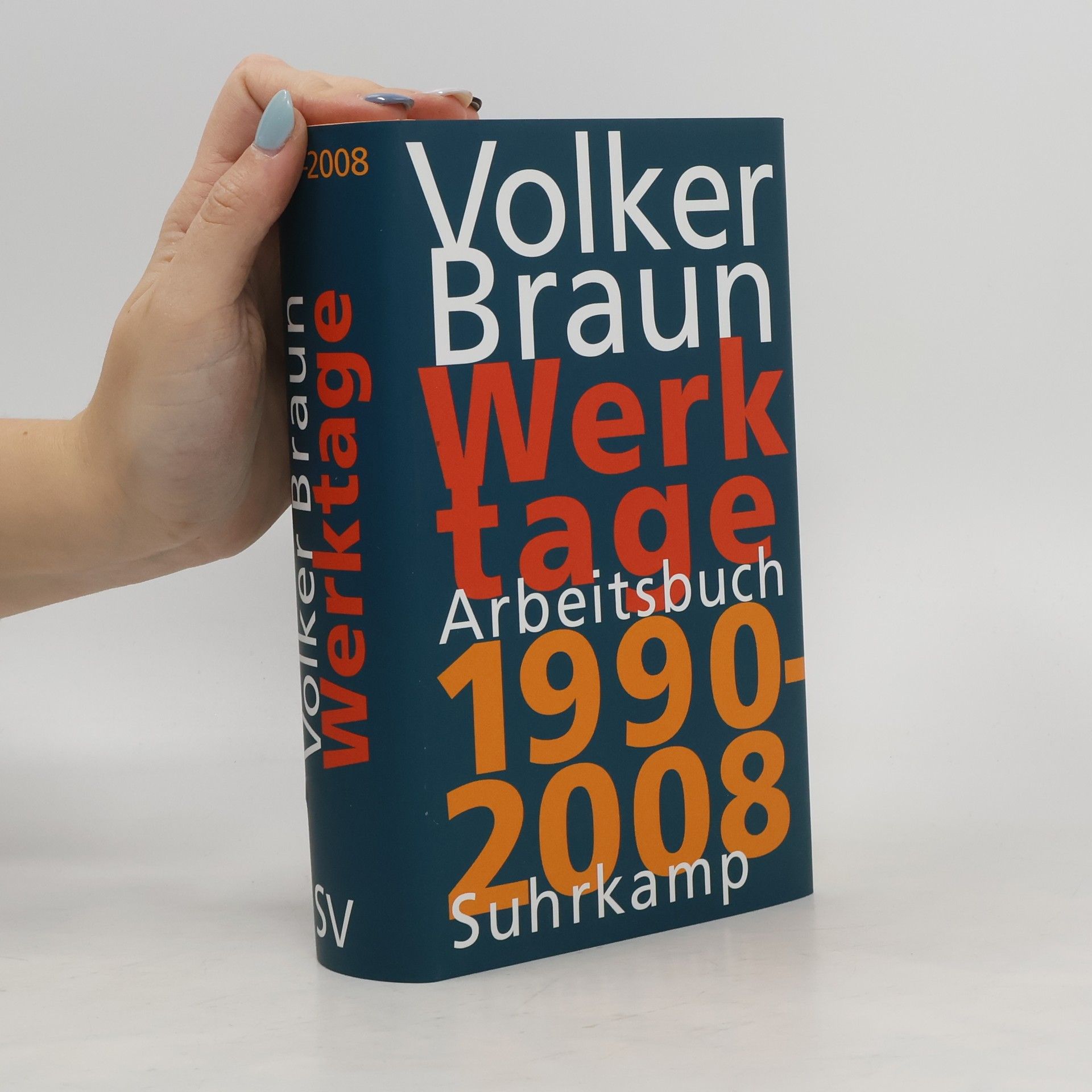



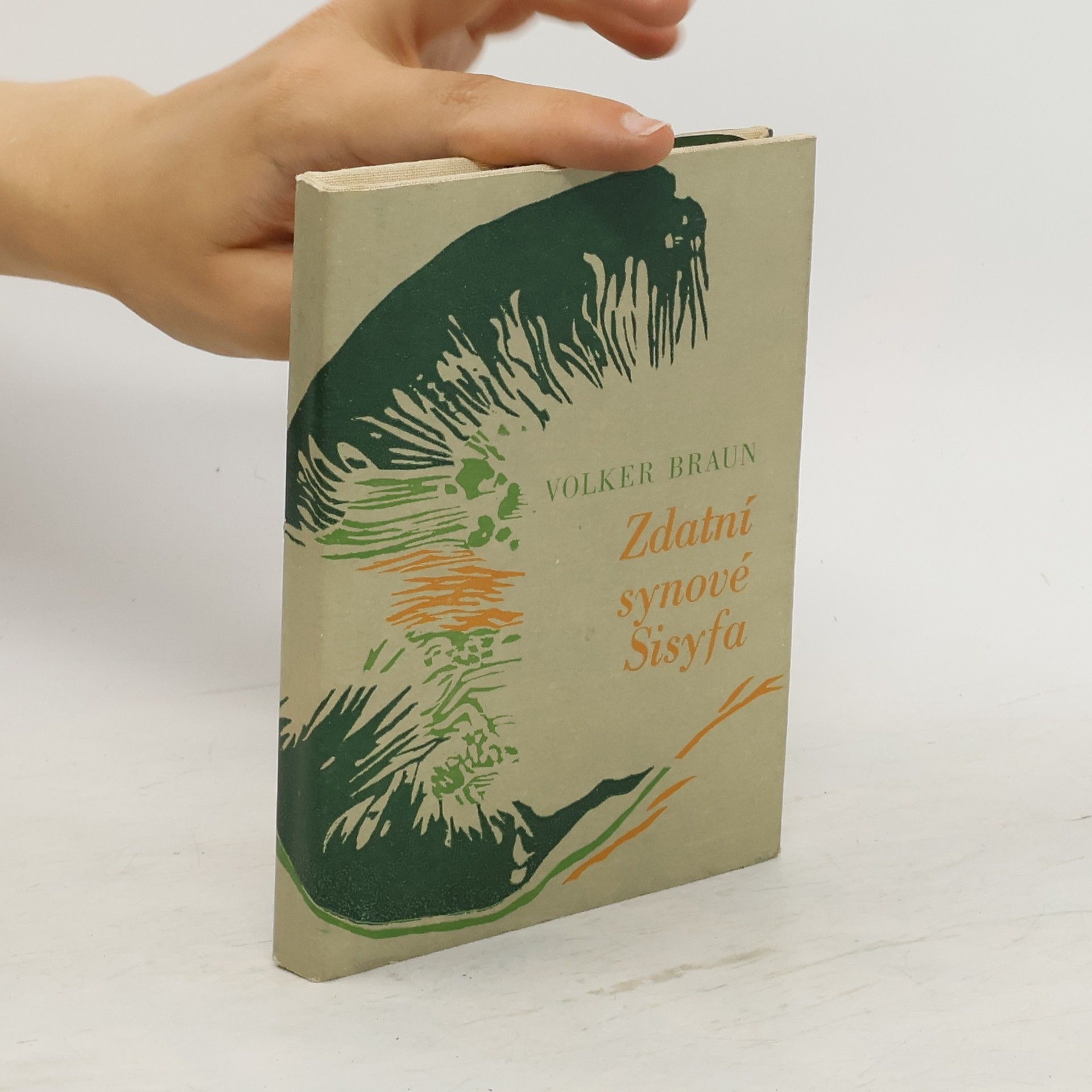
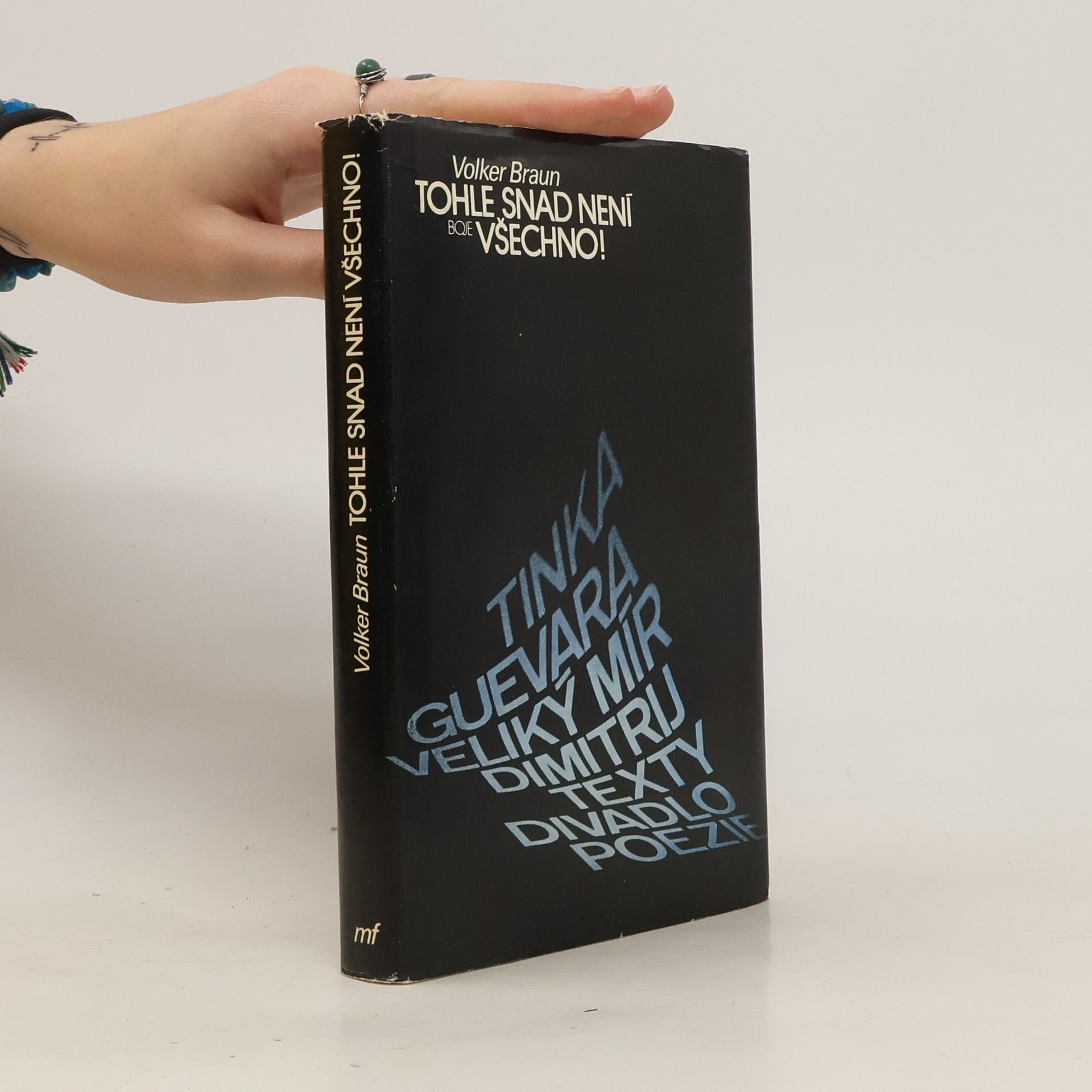
Luf-Passion. Ein Gedichtzyklus
- 64 stránek
- 3 hodiny čtení
Volker Braun's verses explore the unresolved issues stemming from Europe's colonial past and its impact on contemporary democracies. Translated into English by the talented poet Ann Cotten, the work highlights that the themes of looted art and state theft are global rather than national phenomena, emphasizing the international language of justice.
Great Fugue is Volker Braun's most recent collection, an attempt to understand the strange, silent world of 2020 and the COVID pandemic. Drawing on Dante, Beethoven and Pound, the book examines the catastrophic conflict between Progress and Nature in the Anthropocene Age. A book about the day the world stood still in 2020, when our cities were sedated, the streets fell silent and Nature refused to submit to human ideas of Progress. In the Anthropocene era, the Mekong no longer finds its delta, fires burn in the dry forests, and the seas and the skies are fatally poisoned. German writer Volker Braun tries to measure a world caught between climate emergency and global instability, economic growth and social decay.
Werktage 2
- 998 stránek
- 35 hodin čtení
Der erste Band des Arbeitsjournals des im Osten Berlins lebenden Volker Braun endet mit dem letzten Tag des Jahres 1989. In ihm war zu erleben, wie der Prosaist, Essayist, Lyriker und Theaterautor mit seinen genuinen Themen und der entsprechenden Form beharrlich seinen literarischen Weg geht. Ab 1990 ändern sich die Anforderungen an das Werk von Volker Braun radikal. Ein Autor, bei dem die radikale Gleichheit einer der Antriebskräfte seiner vielfältigen Produktivität ist, hat seine Arbeit auf ein Gesellschaftssystem zu orientieren, in dem seine Ziele verneint werden. Und schließlich muß jemand, der wie er mit seinen literarischen Mitteln dagegen ankämpft − auch und trotz der Verleihung des Georg-Büchner-Preises −, damit rechnen, daß seine Produktionsverhältnisse erodieren: das Publikum, die Bühnen, die Medien. Um so mehr Achtung verdient die neue Folge der »Werktage«: Hier ist zu verfolgen, welcher intellektuellen, ästhetischen und menschlichen Anstrengungen es bedarf, sich und dem eigenen Werk, und damit den Denkern und Lesern, treu zu bleiben. Bei aller Mühsal darf eine Geste dieses Buches aufmuntern − die pikareske Einstellung des Autors und seiner Figur: Der Schelm als die lustige Gestalt, die den Leser zum Weinen bringt?
Verheerende Folgen mangelnden Anscheins innerbetrieblicher Demokratie : Schriften
- 132 stránek
- 5 hodin čtení
Fortwährender Versuch, mit Gewalten zu leben
- 100 stránek
- 4 hodiny čtení
Volker Brauns »Versuche« über die Abgründe und Widersprüche unserer globalisierten Welt überraschen in ihrer Vielschichtigkeit und brillieren in ihrer Sprachgewalt. »Früher hätte man die Welt verlassen können, einfach die Zelte abbrechen können, jetzt gibt’s keine Anderwelt mehr, wir sind im Überall.« Mit geschärftem Blick für die Zusammenbindung der Welt und bekannter sprachlicher Virtuosität nähert sich Volker Braun in seinem neuen Prosaband den großen Fragen, die in die Zukunft reichen: Was macht unser heutiges »Überall« aus? Welchen Gewalten ist es ausgesetzt? Und was passiert, wenn die Gegner nicht mehr Staaten sind, sondern Stürme? Seine Bewegung führt auf die eurasische Landmasse, in das Berliner Liquidrom sowie in den Schlosspark Niederschönhausen, wo ihn die Stimmen seiner Begleiter umgeistern.
Machwerk oder das Schichtbuch des Flick von Lauchhammer
- 221 stránek
- 8 hodin čtení
In einer Gegend, die es „hinter sich hat“, ist Meister Flick unter die Arbeitslosen geraten. War er einst bei Havarien im Tagebau der Niederlausitz gefragt, wird er jetzt, mit 60, auf dem Amt vorstellig. Bereitwillig übernimmt er jeden Auftrag: Abfallbeseitigung in den Gruben, Museumswärter und sonstige 1-Euro-Jobs. Wird er nicht vermittelt, beschäftigt er sich selbst und nimmt einem Bautrupp die Schaufeln ab, setzt bestreikte Werkhallen in Gang oder hilft einer Frau beim Sterben. Wurde Flick früher zu Unfällen gerufen, führt er selbst jetzt die Katastrophen herbei. Trotz bester Absicht füllt sich sein Schichtbuch mit seltsamen Einsätzen: Die Arbeitswelt, in der er seinen Platz sucht, gibt es nicht mehr. Begleitet wird er von Luten, seinem Enkel und Gegenpart, der die Arbeit nicht gerade erfunden hat. Flick von Lauchhammer rennt in 48 Schwänken gegen die globalen Windräder an: ein komisch-philosophisches Schelmenstück in der Welt der "Arbeit nach der Arbeit“, eine moderne Donquichotterie und große und heiter glänzende Literatur.
